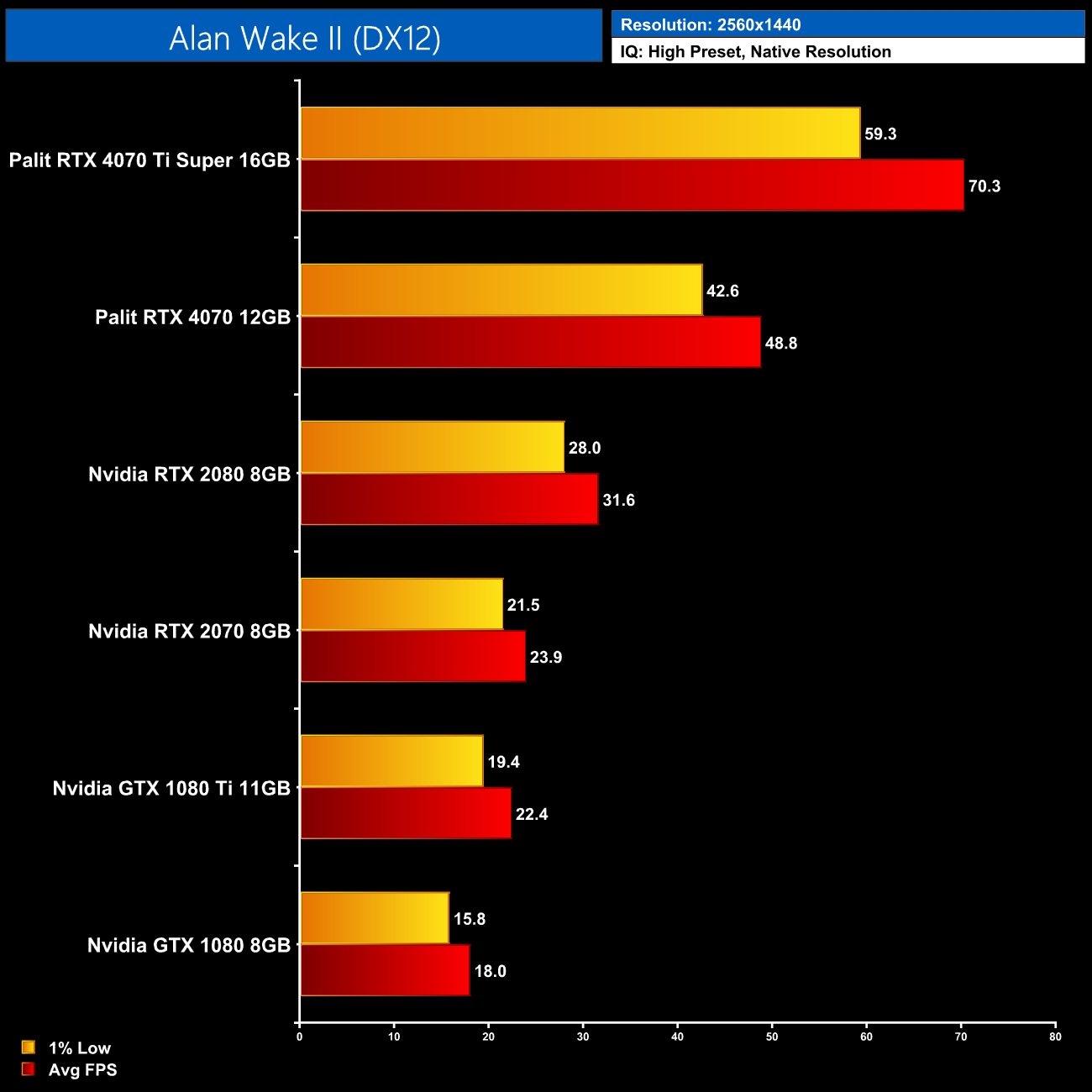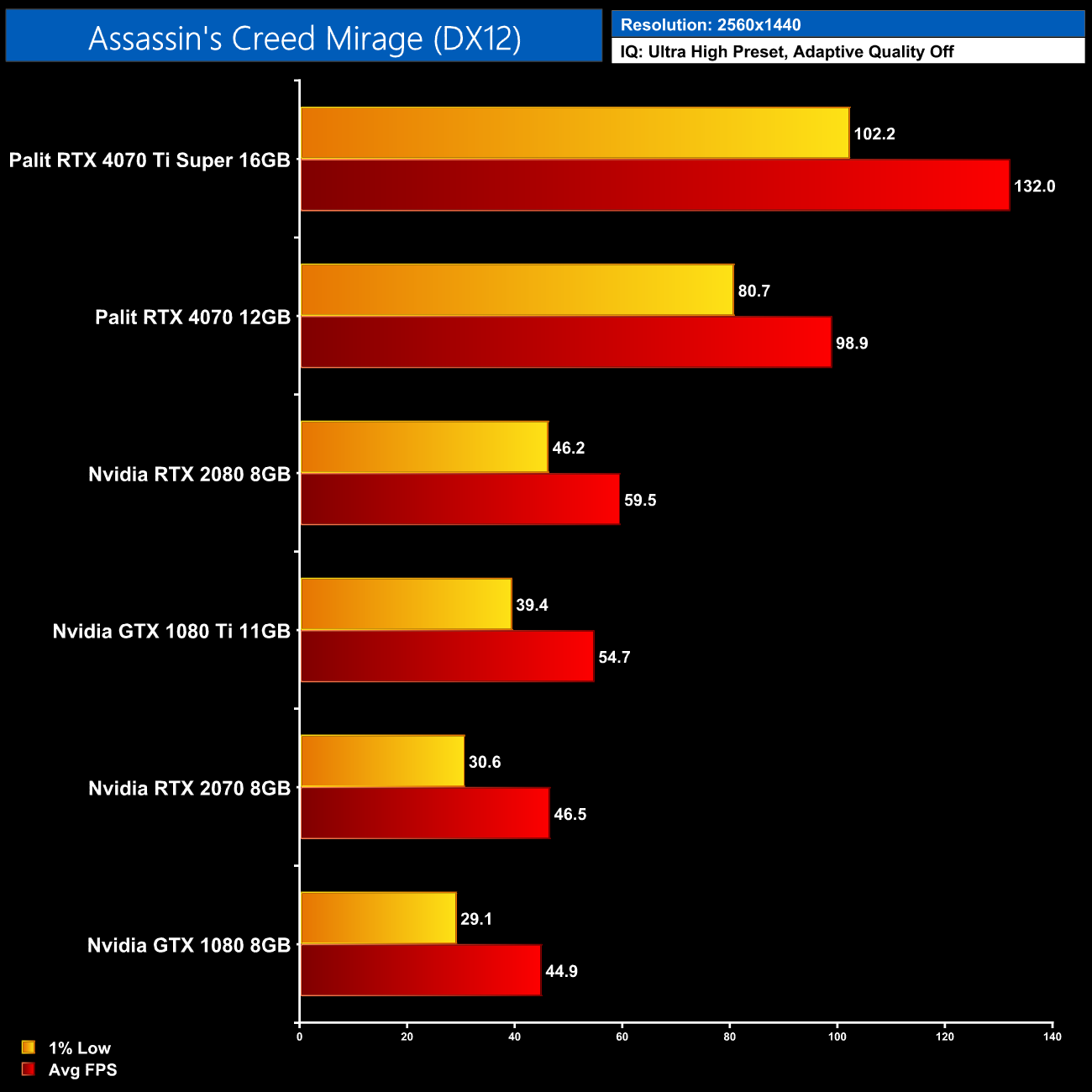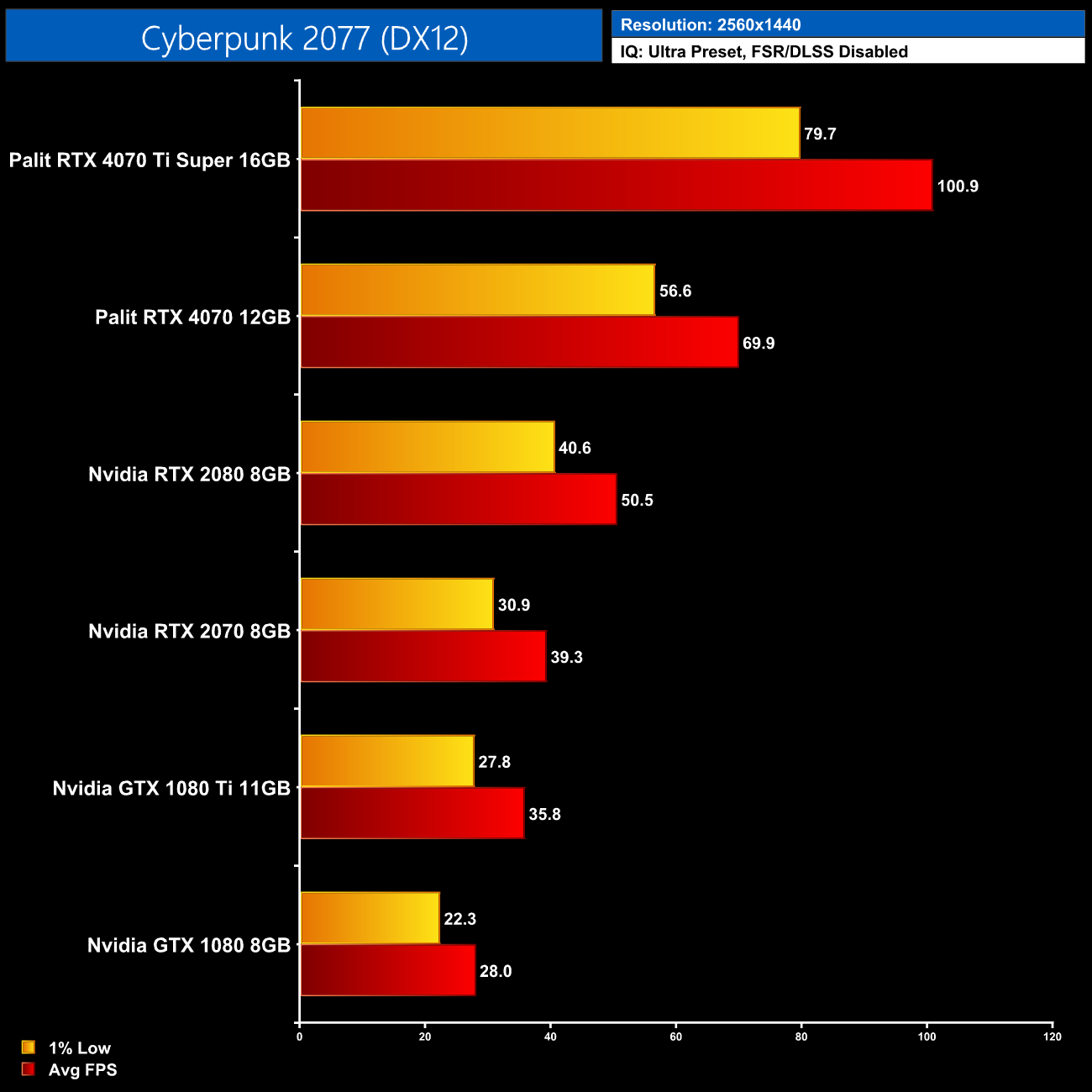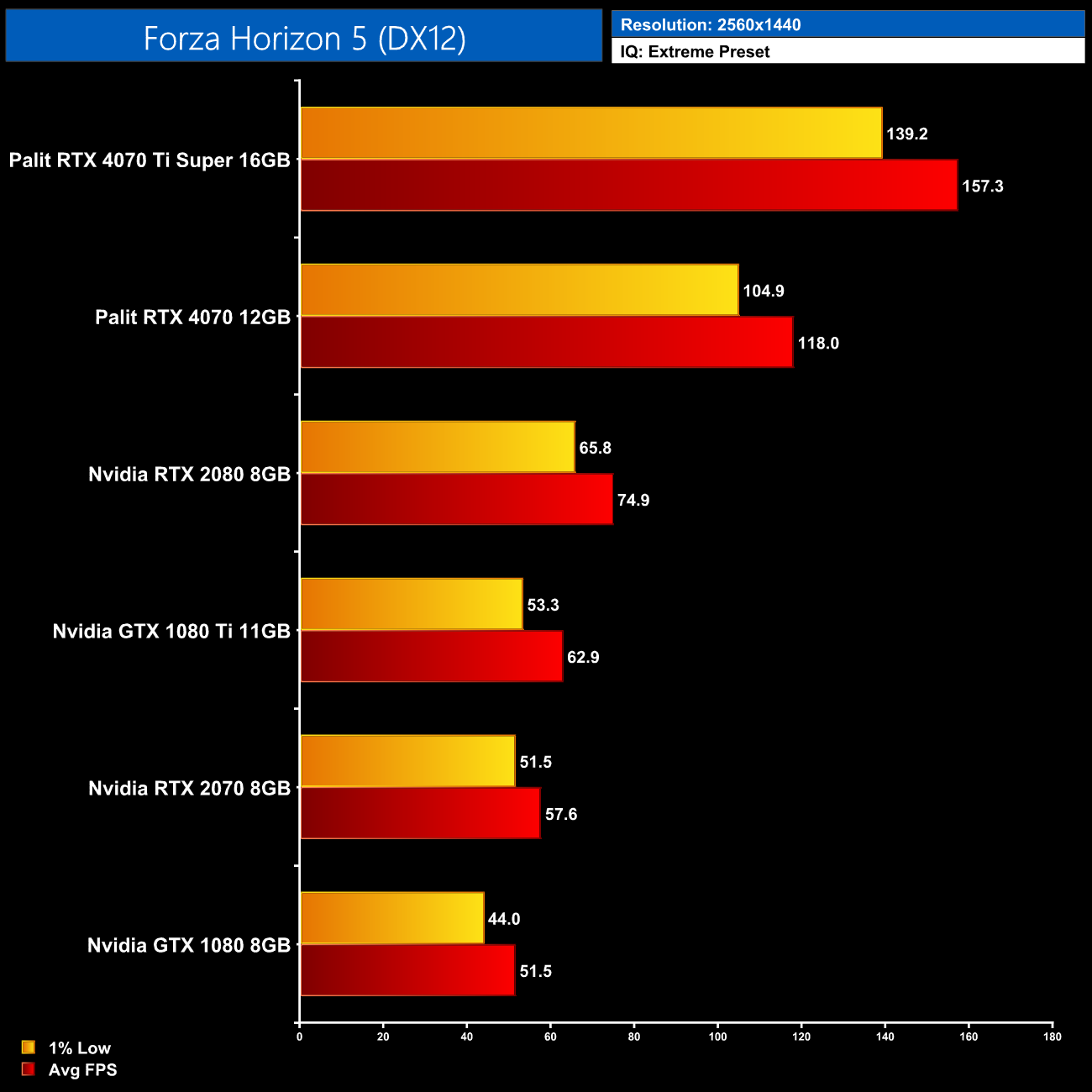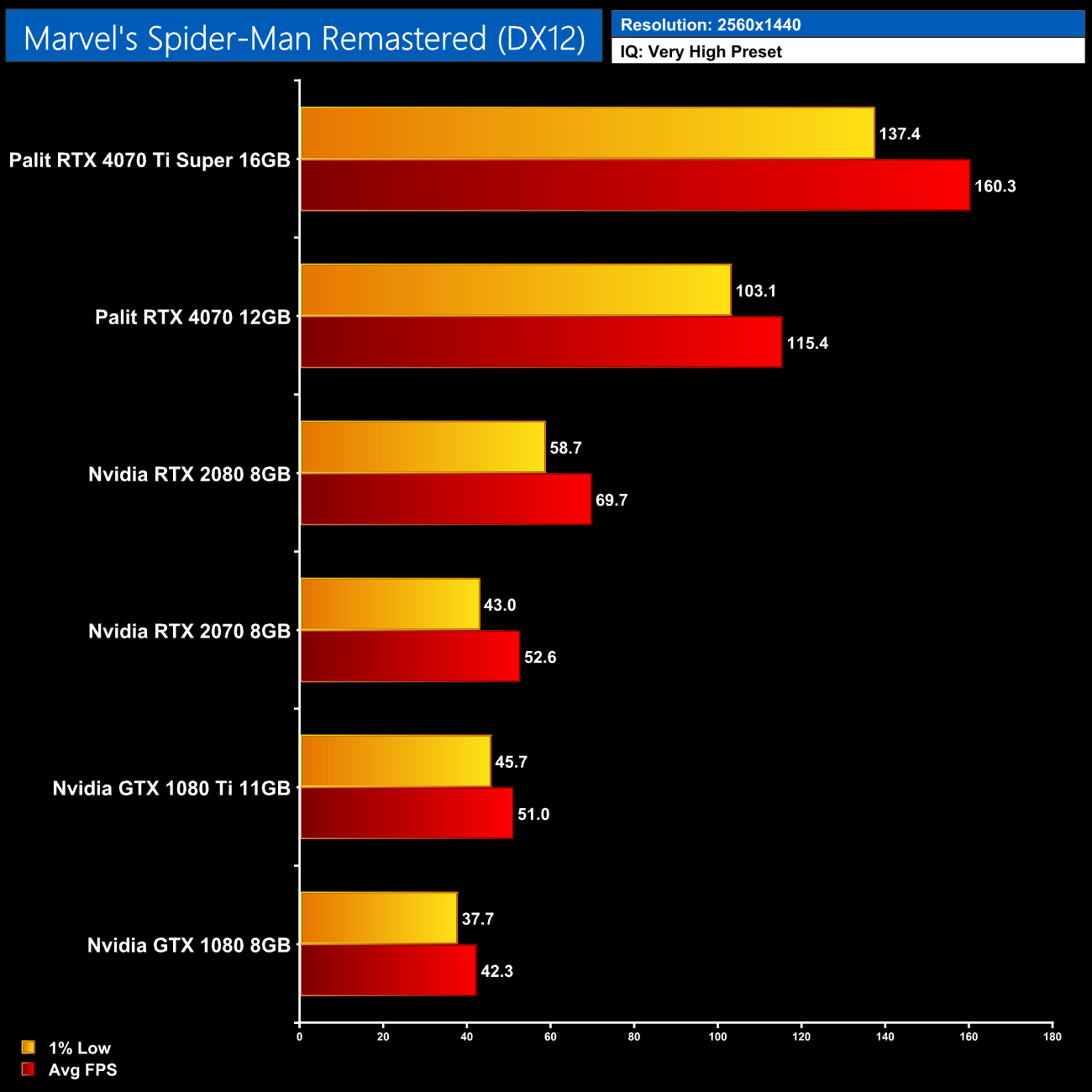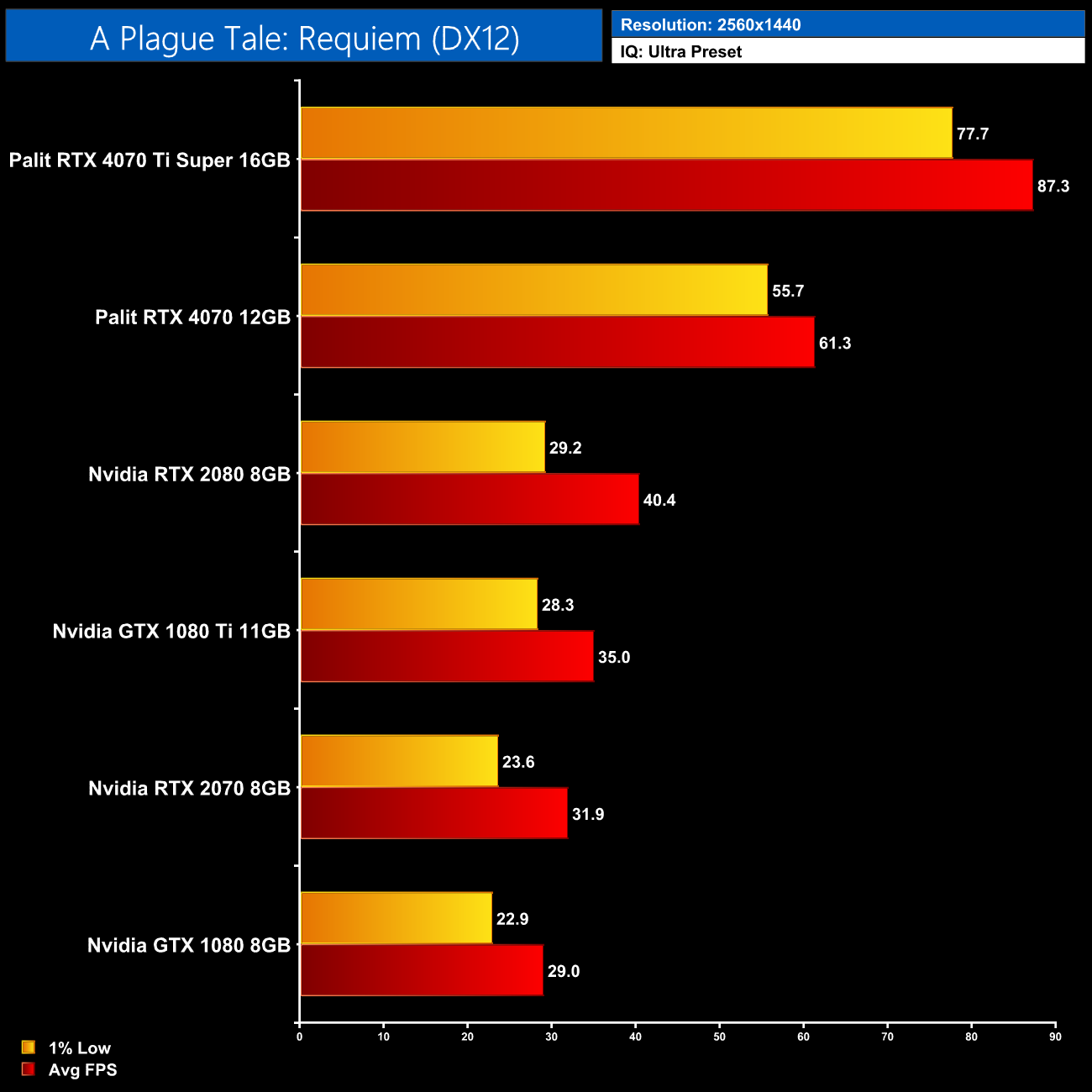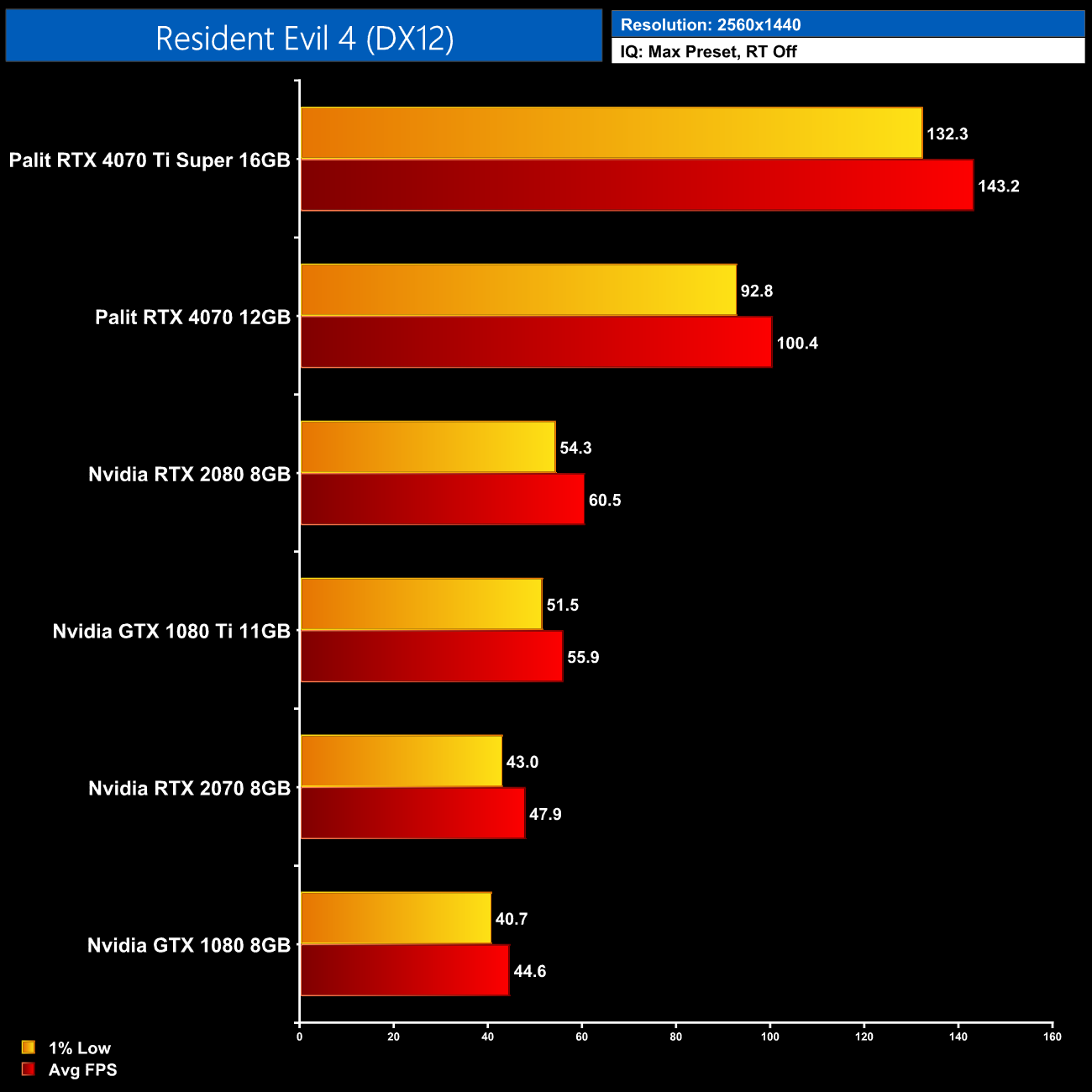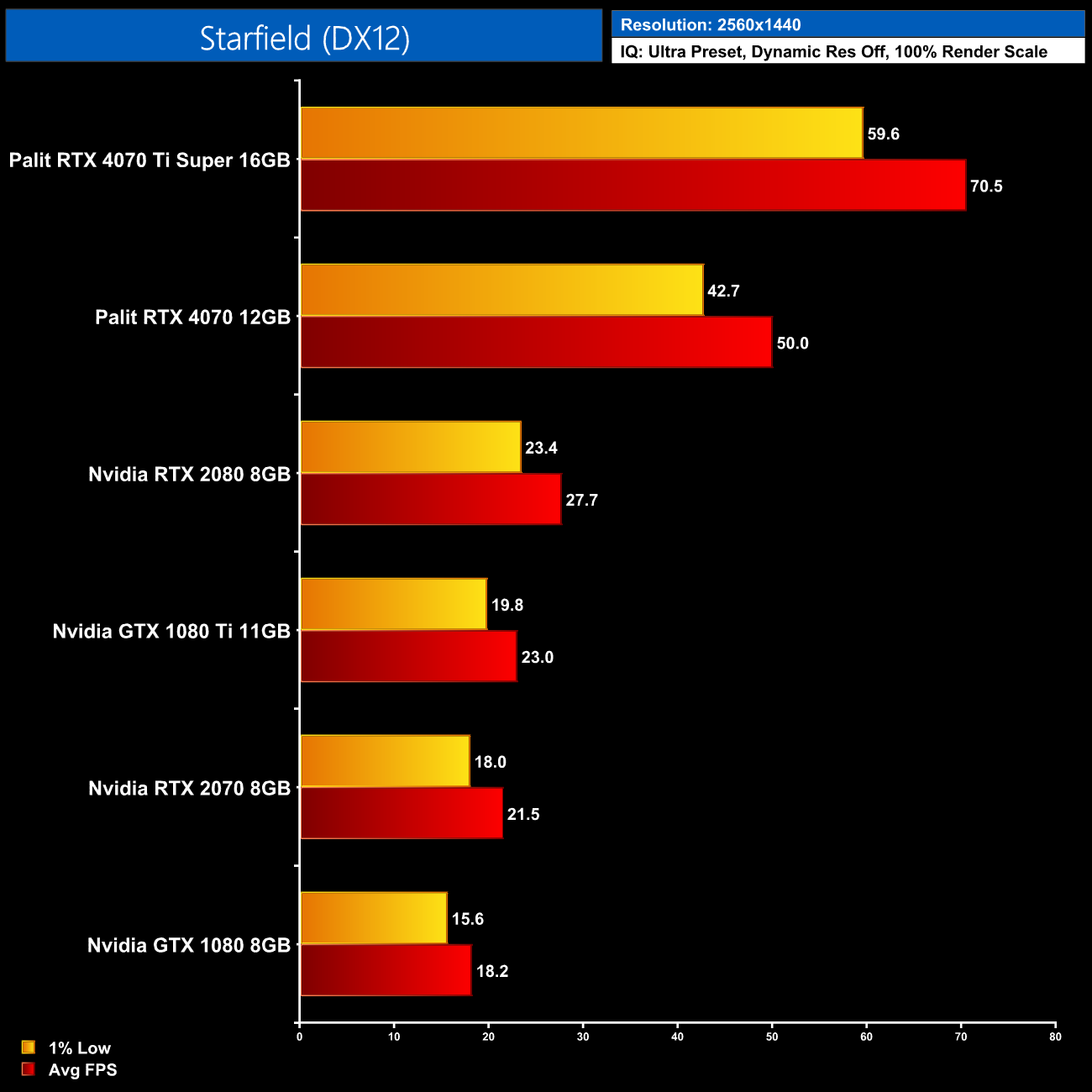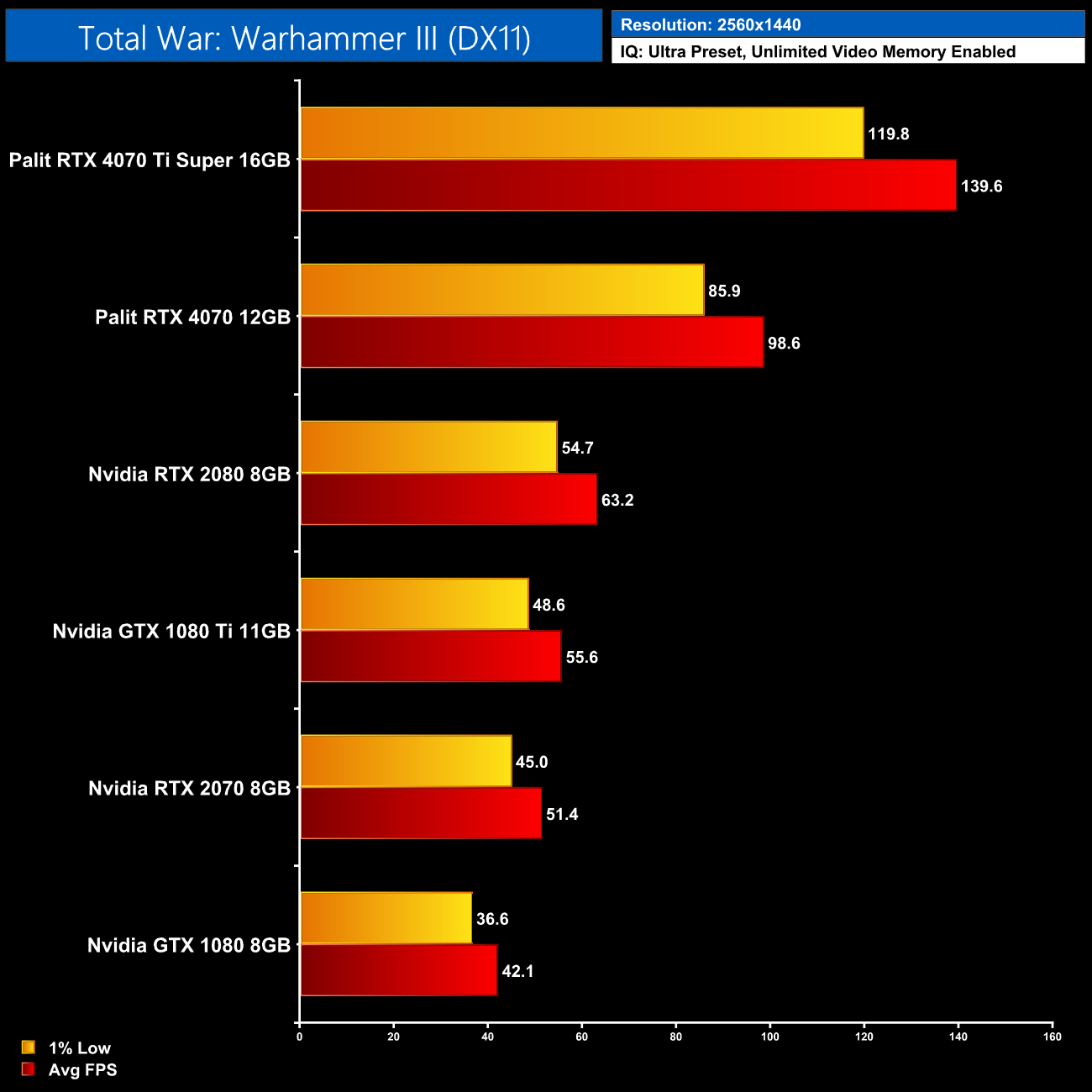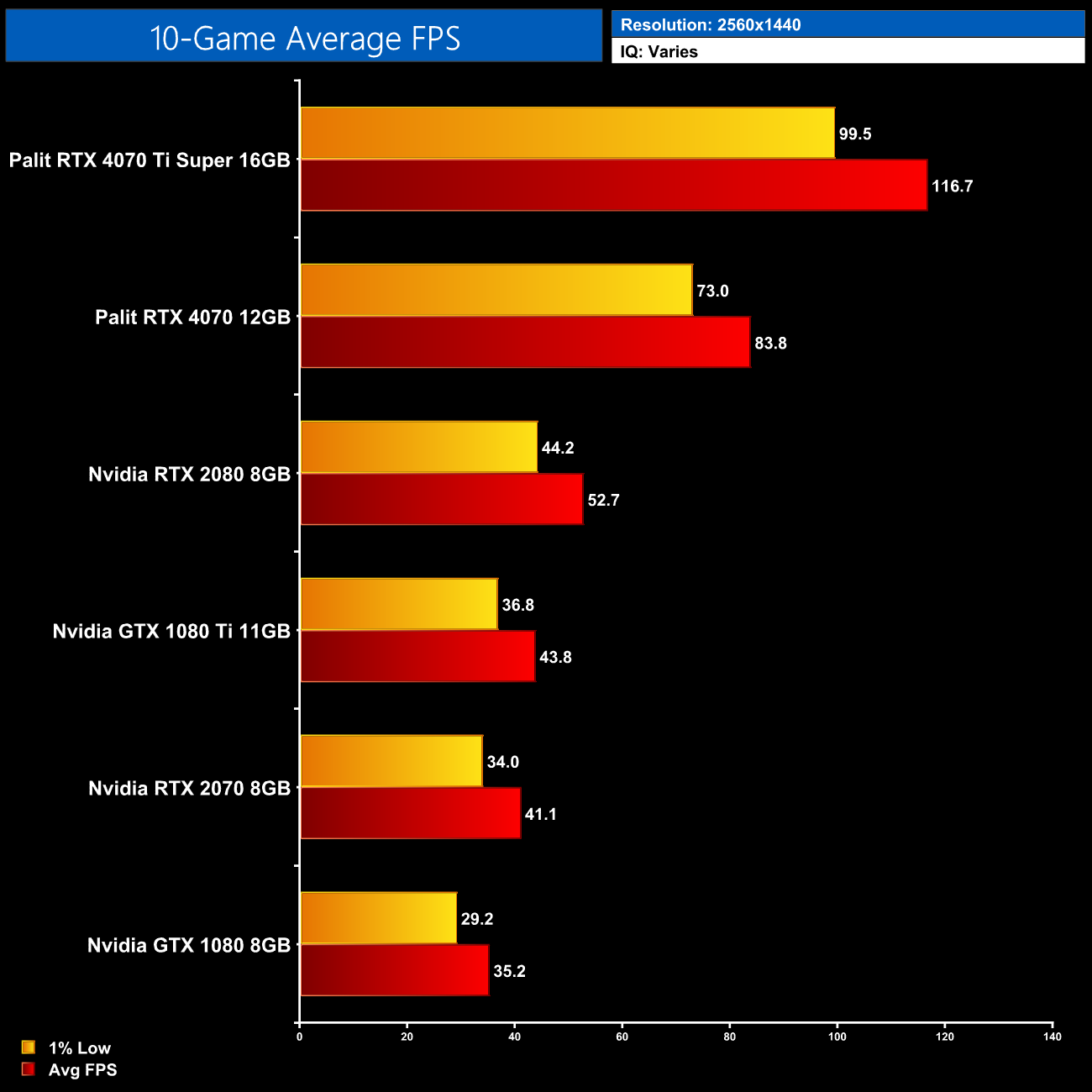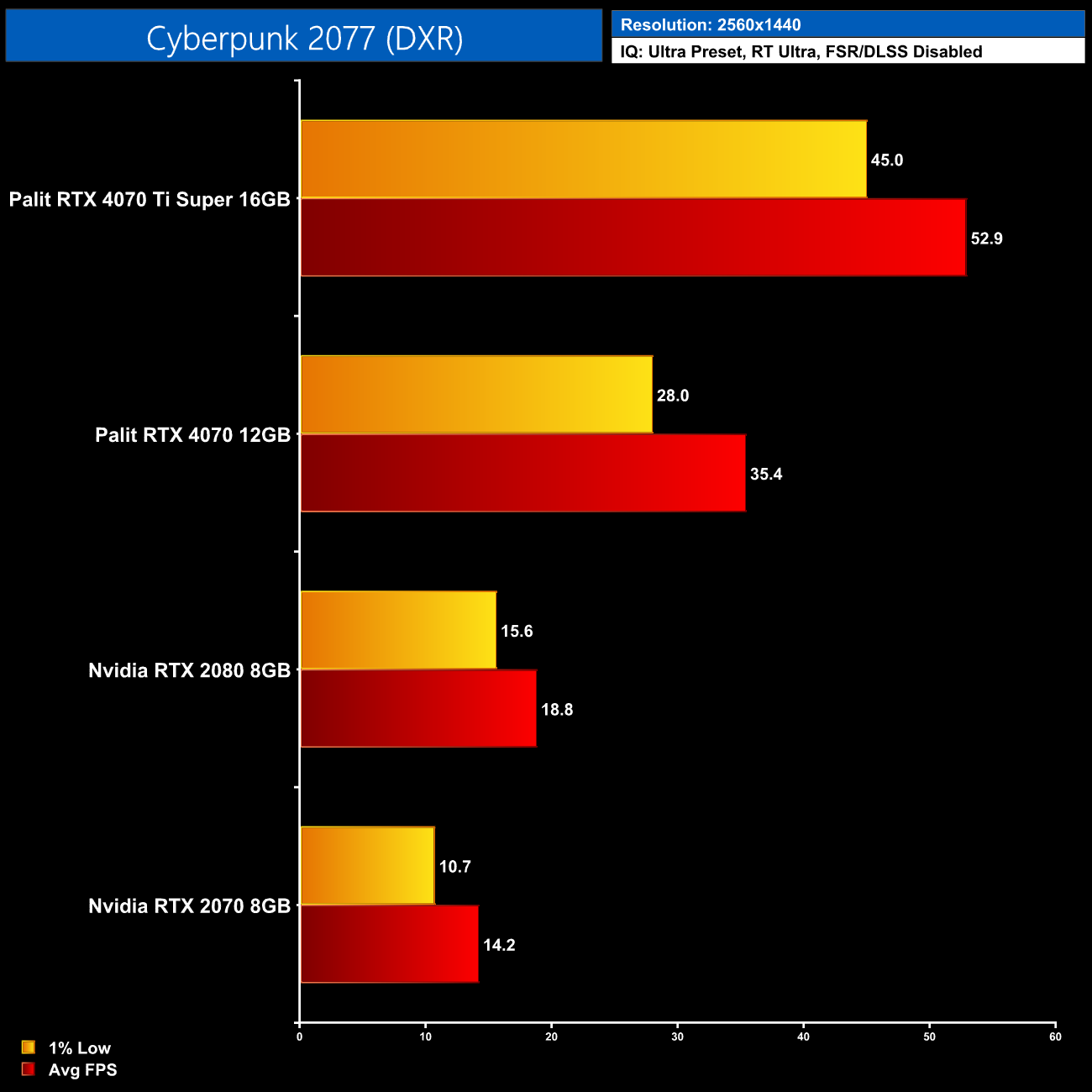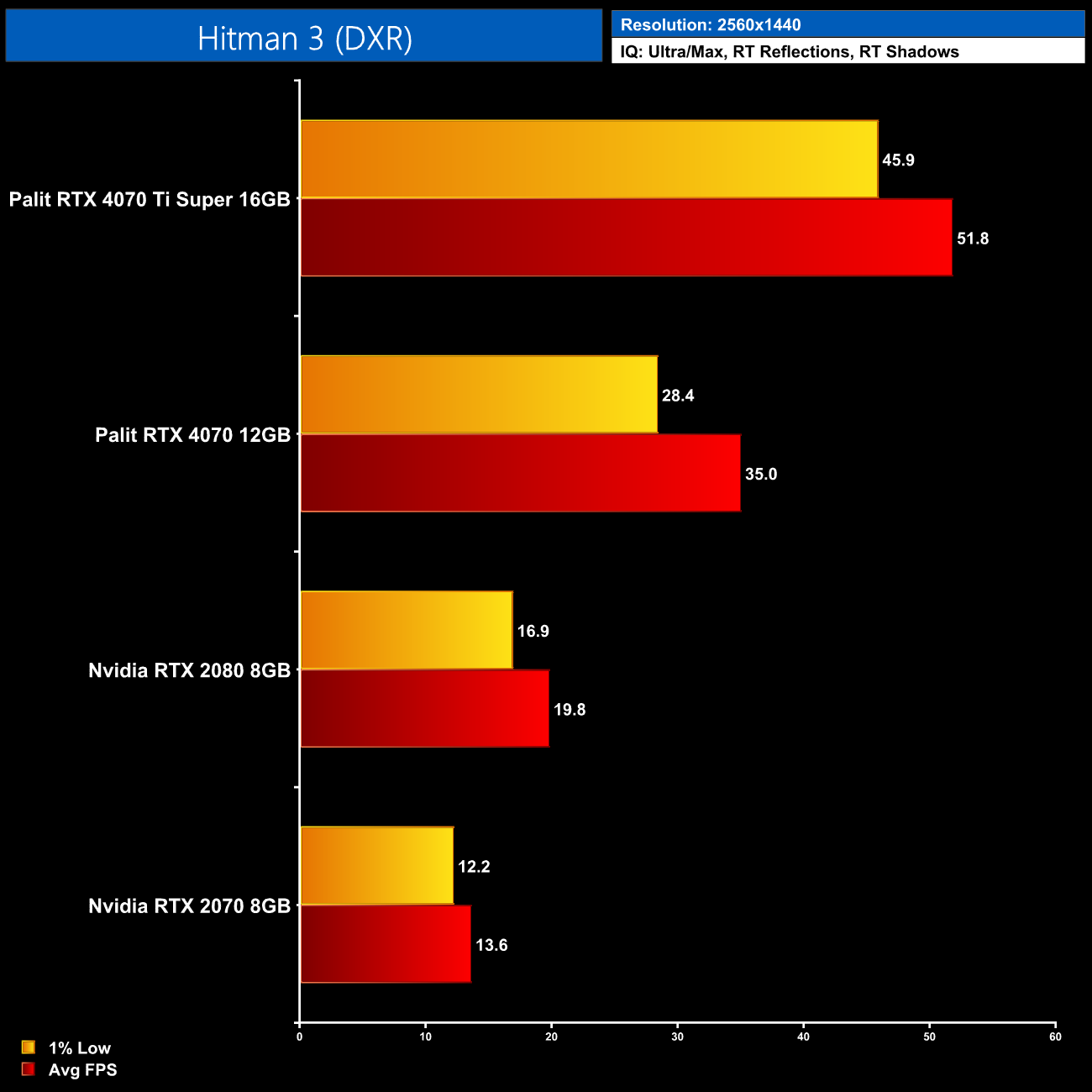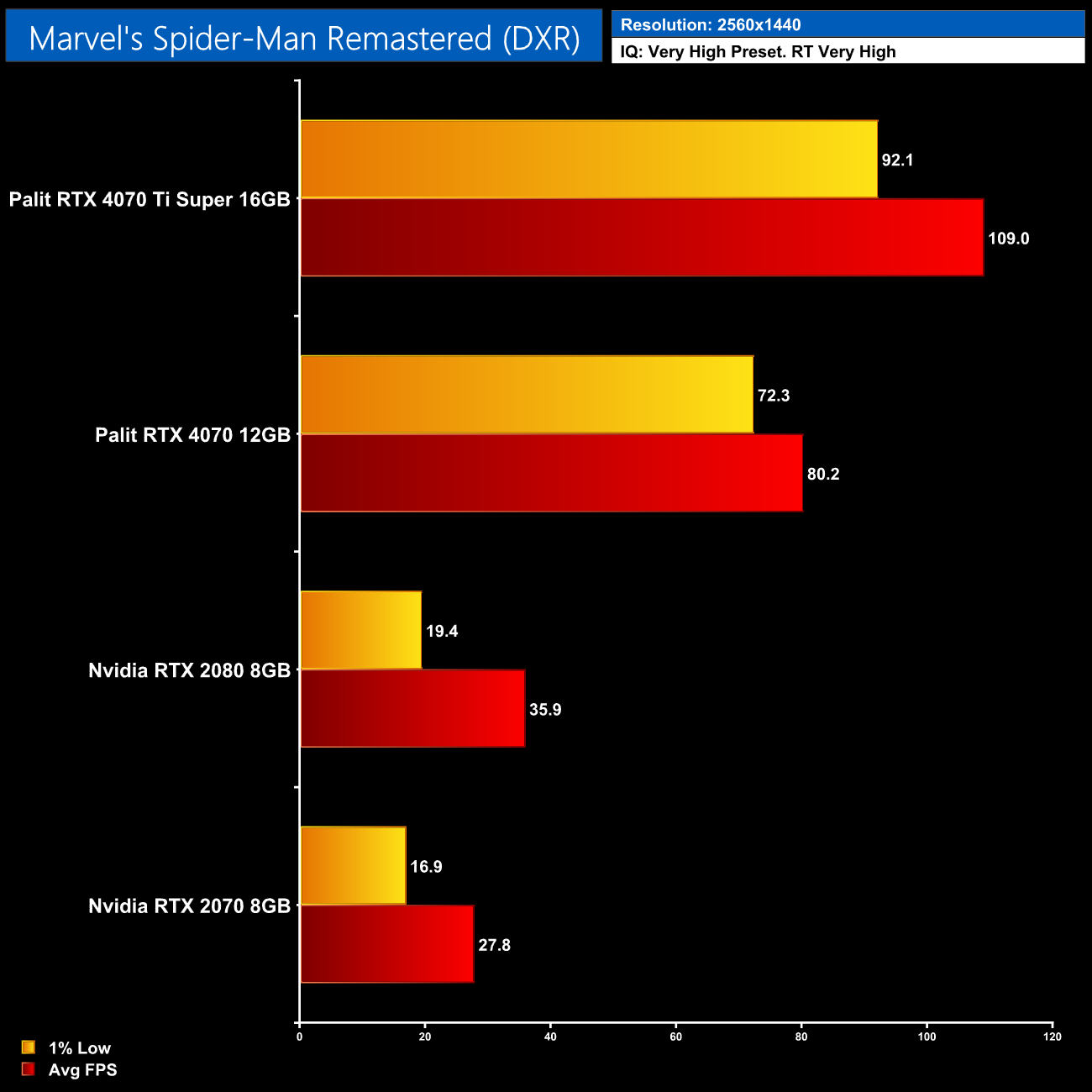When reviewing new graphics cards, usually we test and compare them against the previous generation of GPUs. After all, you want to know how much faster the new cards are compared to what’s currently on the market. That is all well and good, but what if you don’t have a last-gen GPU? We know most people won’t upgrade for at least two if not three GPU generations, so it’s not always immediately clear just how big of an upgrade you are getting.
With that in mind, when Palit reached out about sponsoring this look at an RTX 4070 and 4070 Ti Super, I thought it was a great chance to go back and find out how far these GPUs have progressed from things you might actually be upgrading from – like the GTX 10 series or RTX 20 series…
Timestamps
00:00 Intro
02:01 Game benchmarks
06:50 Performance summary + efficiency
08:09 Ray tracing performance
09:37 DLSS testing
11:30 Taking a look at the two cards
12:49 Closing thoughts
The goal of this article then is very straightforward. We’ve been sent the new Palit RTX 4070 White, alongside the Palit RTX 4070 Ti Super GameRock Omniblack, and I’m putting them head to head with the likes of the GTX 1080, 1080 Ti, RTX 2070 and RTX 2080… We’ll be testing 10 modern games, another 3 with ray tracing, while also looking at the performance you can expect when enabling DLSS.
Test System:
We test using a custom built system from PCSpecialist, based on Intel’s Rocket Lake platform. You can read more about this system HERE and configure your own PCSpecialist system HERE.
| CPU |
Intel Core i9-13900KS
|
| Motherboard |
Gigabyte Z790 Gaming X AX
|
| Memory |
32GB (2x16GB) Corsair Dominator Platinum RGB DDR5 6000MHz
|
| Graphics Card |
Varies
|
| SSD |
4TB Seagate Firecuda 530 Gen 4 PCIe NVMe
|
| Chassis | Corsair 5000D Airflow Tempered Glass Gaming Case |
| CPU Cooler |
Corsair iCUE H150i Elite RGB High Performance CPU Cooler
|
| Power Supply |
Corsair 1600W Pro Series Titanium AX1600i Digital Modular PSU
|
| Operating System |
Windows 11 23H2
|
| Monitor |
MSI MPG 321URX QD-OLED
|
| Resizable BAR |
Enabled for all supported GPUs
|
- All graphics cards were tested using the Nvidia 556.12 driver.
Game benchmarks
Kicking off then with Alan Wake II, one of the best looking games released over the last couple of years, we can see that the 10- and 20-series cards really struggle to get playable frame rates, with even the RTX 2080 seeing its 1% lows drop below 30fps. The Palit RTX 4070 White however, hits 49FPS on average, so it’s over twice as fast as the RTX 2070 and GTX 1080 Ti. The 4070 Ti Super GameRock Omniblack is faster still delivering 70FPS on average, also making it over double the performance of the RTX 2080.
Next up we have Assassin’s Creed Mirage. This one is playable on the older GPUs, at least from the RTX 2070 which can just keep above 30fps for the 1% lows – but there is a clear leap in performance from even the RTX 2080 up to the RTX 4070m given the Palit card is 66% faster. The 4070 Ti Super also breaks past 100FPS with ease, and is again over twice as fast as the RTX 2080.
Despite being nearly four years old, Cyberpunk 2077 is still a very tough test for modern GPUs, and both the 10-series card we tested couldn’t manage a stable 30FPS at 1440p. The jump from RTX 2070 to RTX 4070 works out at an 78% FPS increase, while the 4070 Ti Super is almost exactly double the performance of the RTX 2080, so not a bad upgrade there…
Moving on, Forza Horizon 5 as we know is a very well optimised title and you can still get 50FPS even with the GTX 1080. However, if you want to enjoy the benefits of a higher refresh-rate monitor, you’ll need something like the 4070, which is capable of nearly 120FPS, or the 4070 Ti Super, which is over twice as fast as the RTX 2080.
Next up we have another new title, Horizon Forbidden West. This runs relatively well on older hardware – that is, as long as you’re happy with sub-50FPS. To break past 60FPS, you’ll need the RTX 4070, which comes in almost twice as fast as the 2070, and we have the 4070 Ti Super another 30FPS ahead, delivering 106FPS on average.
- Spider-Man Remastered is another former PlayStation exclusive and again it does run relatively well on the older cards, the GTX 1080 Ti is still hitting 51FPS for instance. At well over twice the performance however, the RTX 4070 does give you a much smoother experience, hitting 115FPS on average, and the 4070 Ti Super is faster still at 160FPS, making it 130% faster than the RTX 2080.
Up next we have a Plague Tale Requiem, where at 1440p none of the 10 or 20-series cards could keep the 1% lows above 30FPS. Contrast that with the RTX 4070, sitting at 61FPS with very tight 1% lows, and the 4070 Ti Super at 87FPS, and you can see the difference a couple of GPU generations make.
As for Resident Evil 4, this is another game where the older cards are still playable, but you can clearly see just what a step up the likes of the RTX 4070 is, even against the RTX 2080 it’s 66% faster, whereas the 4070 Ti SUPER is well over twice as fast.
Starfield, on the other hand, is surprisingly punishing – at least in our test area in the Forests on Jemison. Basically none of the older cards can do Ultra settings, whereas the RTX 4070 hits 50FPS and isn’t far off from offering twice the performance of the RTX 2080. The 4070 Ti Super is even able to hit 71FPS, making it two and a half times as fast as the 2080.
Finally, we have Total War Warhammer III, and we see more of the same at 1440p. the RTX 4070 just comes in way ahead of the 2080, to the tune of a 56% margin, while the 4070 Ti Super is over twice as fast, hitting 140FPS.
Average
That’s it for the 10 games we benchmarked, but let’s take a look at the average results… As you can see, the RTX 4070 delivered 84FPS on average, making it twice as fast as the RTX 2070, and just under that compared to the 1080 Ti. The RTX 4070 Ti Super hit 117FPS, and that makes it well over twice as fast as the RTX 2080, with a 2.2 times multiplier.
Ray Tracing
Starting at Cyberpunk though, it’s really a case of simply unplayable versus playable – frame rates could always be higher on the 40-series cards, but we will take a look at DLSS in just a moment. Still, the gains are nonetheless incredibly large, with the 4070 Ti Super almost three times as fast as the RTX 2080 here at 1440p.
It’s a very similar story in Hitman 3. The RTX 2070 for instance just cannot get a playable frame rate with RT shadows and reflections, whereas the RTX 4070 is 157% faster at 1440p, and only gets better once DLSS is enabled. The 4070 Ti Super is faster still, at 52FPS on average.
Then we come to Spider-Man Remastered, which even with just RT reflections, brings the RTX 2070 and 2080 to its knees, especially with very poor 1% lows. VRAM is definitely a factor here too, with even the 4070 being almost three times as fast as the RTX 2080, while the 4070 Ti Super is even further ahead – so the ray traced gains are even bigger than what we saw from rasterisation.
DLSS
We also tested three games to find out what benefit DLSS Super Resolution and Frame Generation can offer. Be sure to check out the video for a more detailed look, but you can get a snapshot summary from these screenshots:
Cyberpunk 2077:
Hitman 3:
Starfield:
Closing Thoughts
That brings us to the end of this showcase of the Palit GeForce RTX 4070 White and Palit GeForce RTX 4070 Ti Super GameRock Omniblack. As we have seen, if you are still using something like a GTX 1080 or RTX 2080, then the step up to one of these cards will net you significantly more performance – with the modern cards often twice, if not three times as fast in certain situation, like when you enable ray tracing.
They can also offer the latest-and-greatest features thanks to the Ada architecture, including DLSS 3 Frame Generation which can significantly boost frame rates.
If you are interested in learning more, you can find the Palit GeForce RTX 4070 White HERE and the Palit GeForce RTX 4070 Ti Super GameRock OmniblackHERE. You can also shop the Palit the range on Ebuyer HERE and on Scan HERE.
Discuss on our Facebook page HERE.
KitGuru says: What graphics card are you currently using – how big of an upgrade would the RTX 4070 or RTX 4070 Ti Super be?
 KitGuru KitGuru.net – Tech News | Hardware News | Hardware Reviews | IOS | Mobile | Gaming | Graphics Cards
KitGuru KitGuru.net – Tech News | Hardware News | Hardware Reviews | IOS | Mobile | Gaming | Graphics Cards








